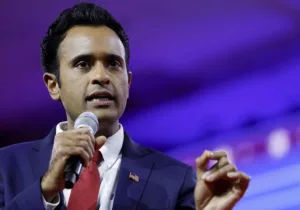Whether peoples shall self-govern or submit to tyrants and their accomplices is the perennial issue for all statecraft. Rulers in Russia, China, North Korea, Iran, Saudi Arabia, Cuba, Burma, Vietnam and in much of the world uphold the latter. They may at times celebrate the popular will, but they reserve for themselves the exclusive interpretation of that will.
They are divided by their ideological and religious justification for their despotisms. The Chinese, with Cuba, North Korea, and Vietnam, claim the Communist Party has exclusive authority. Putin roots authority in his personal mafioso-style rule. The Saudis and Iranians, like the Taliban in Afghanistan, claim their version of Islam sacralizes them against all opposition. But they are united in their opposition to the American promise of July 4, which is the intrinsic, divinely ordained right of all persons to self-government, with life, liberty, and the pursuit of happiness. Most contemporary despots rhetorically affirm human equality even as they trample it under foot, and often deny that equality is rooted in divine creation.
On the 50th anniversary of the Declaration of Independence, Thomas Jefferson famously expressed hope that the document of which he was primary author might be “to the world, what I believe it will be, (to some parts sooner, to others later, but finally to all,) the Signal of arousing men to burst the chains, under which monkish ignorance and superstition had persuaded them to bind themselves, and to assume the blessings & security of self-government,” to include “freedom of opinion.”
Jefferson was confident that “the mass of mankind has not been born with saddles on their backs, nor a favored few booted and spurred, ready to ride them legitimately, by the grace of god.” Instead, all people were created for dignity and decency. Jefferson inherited this language from two martyrs of liberty in the 1680s. English polemicist Algernon Sydney, executed under King Charles II in 1683, wrote: “I will believe in the right of one man to govern a nation despotically when I find a man born unto the world with boots and spurs, and a nation with saddles on their backs.”
Baptist leveler Richard Rumboldt, who similarly was executed for his opposition to royalist rule in 1685, declared from the scaffold:
This is a deluded generation, veiled in ignorance, that though popery and slavery be riding in upon them, do not perceive it; though I am sure that there was no man born marked by God above another; for none comes into this world with a saddle on his back, neither any booted and spurred to ride him…
King Charles II had closed Parliament in 1682, instead relying on cash from the authoritarian King Louis XIV of France, scattering the opposition, arresting adversaries real and perceived, including the great nonconformist divine Richard Baxter, and clearing the path for his eventual successor King James II, whose ambitions were even more autocratic. These Stuart kings steered away from Britain’s trajectory of rights and limits on royal power in favor of the French model, without an ongoing parliament, and without protections of liberties or tolerance for religious minorities.
Anti-royalists like Algernon Sidney were often responding to arch royalist political theorists like Robert Filmer, who argued that all kings, without qualification, are ordained by God, partaking of the sovereignty granted to Adam before the fall, so that any resistance to them was wicked. Royal absolutism was a safeguard to disorder and anarchy. Sidney countered that the Bible was full of heroes who defied wicked kings, such as Moses against Pharoah, or Samuel and David against Saul. He also argued that popular governments, with public backing, have more stability than authoritarians who rely on the sword. Sidney mocked Filmer for suggesting, as Sidney portrayed, that God “caused some to be born with crowns upon their heads, and all others with saddles upon their backs.”
Nearly every political theory proposes that the crown is placed upon an exclusive few or upon the expansive many. Wise political theories guard against unlimited powers for the few or the many. And sophisticated political theories assign a qualified, metaphorical crown to each person, great or small. Each person has been granted rights and responsibilities about themselves and their societies. All are called to steward their societies for the good of all. No person or group can be trusted absolutely. So, all are empowered to guard against potential tyranny and abuse, to which all persons are prone. Everybody, if enabled, will choose boots and spurs, expecting others to wear the saddle.
“Man’s capacity for justice makes democracy possible, but man’s inclination to injustice makes democracy necessary,” 20th century Christian Realist theologian Reinhold Niebuhr famously noted. July 4 is not just a national self-celebration. It’s a fairly demanding call to political and spiritual reflection. For nearly all of human history, and still in much of the world today, there are the saddled, and there are the booted and spurred. America’s declaration, in contrast, calls us all to mutual respect and equal citizenship.
Tyrants and despotisms always beckon. But the “blessings and security of self-government” offer greater happiness.







 Sponsor a student for Christianity & National Security 2024
Sponsor a student for Christianity & National Security 2024